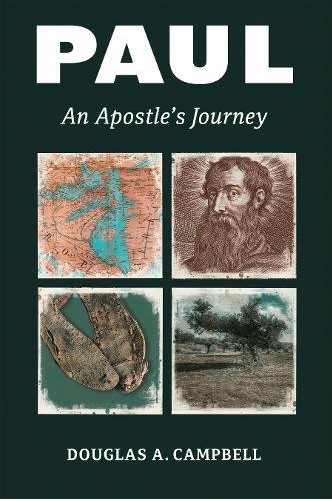 My friend Mike Bird is the editor of a new book called The Apostle Paul, one of the more important Counterpoints books produced by Zondervan. What makes the Counterpoints series so helpful is that readers are given four committed authors who interact with one another, sometimes at razor’s edge because what they wrote in their chp matters so much to them. I don’t think Zondervan has ever produced a volume with four such different viewpoints as this new book on Paul.
My friend Mike Bird is the editor of a new book called The Apostle Paul, one of the more important Counterpoints books produced by Zondervan. What makes the Counterpoints series so helpful is that readers are given four committed authors who interact with one another, sometimes at razor’s edge because what they wrote in their chp matters so much to them. I don’t think Zondervan has ever produced a volume with four such different viewpoints as this new book on Paul.
My big question: If you listed the problems Paul was facing and seeking to resolve, what would your top three be?
Tom Schreiner provides a Reformed reading of Paul (though I’d call it a Calvinist Baptist reading), Luke Timothy Johnson a Catholic reading, Douglas Campbell a post new perspective reading, and Mark Nanos a Jewish reading. Well, I’m not sure you could come up with four more jarring angles on Paul — so I commend Mike Bird for the volume. However, I must add a point: students and pastors need a New Perspective chapter, and I’m aware that Mike thinks Pauline studies have moved beyond the new perspective. Perhaps so — well, yes, it has — but that none of these scholars can be understood in academic context without understanding what has occurred to Paul as a result of the new perspective, and here I’m thinking of Sanders, Dunn, and then Wright. OK, on to the volume.
Tom Schreiner’s reading is as predictable as the soterian gospel is clear and as the legacy of the Reformation is well-known. So “predictable” is not an insult or a criticism; it is a truism. Here are Schreiner’s conclusions about Paul’s theology, and remember (as it will make a difference in the rest of this book) that Bird set out the major areas that each author was supposed (but didn’t always) discuss, but Schreiner followed directions:
1. Paul’s framework is salvation-history: that is, the Old Testament message and prophetic shape came to its completion in Jesus. That is, Paul’s theology was formed by the Old Testament. [Luke Johnson picks on this; not all of Paul’s letters are so easily described.] Schreiner sees new exodus, new covenant and new creation. But the eschatological fulfillment is one of inaugurated, not completely realized, eschatology: there is a tension between the now and the not yet.
2. Jesus Christ is central in Pauline theology. He is the Son of God and the Davidic Messiah, though the fundamental emphasis of Schreiner is that Jesus is the divine Savior.
3. Paul’s view of salvation begins with humans as sinners and under the judgment and wrath of God. “Paul’s answer is that humans beings need to be saved from sin and form the judgment and wrath of God on the last day” (27). Most of this chp flows from this central conclusion [and Douglas Campbell’s response is a robust rejection of this theme as central to Paul’s theology; instead of wrath, the central theme of Paul is God’s love and grace], though other observations are made as well. Including that a passage like Romans 2 means real obedience, but it is an obedience created by the Holy Spirit; grace is paramount in Paul and it is a “stunning gift” (32); one metaphor won’t capture Paul’s theology of salvation; penal substitutionary atonement is central in Pauline thought; the faith of Christ debate is about our faith in Christ [Johnson disagrees as it is not one or the other but both].
4. Paul’s understanding of the church: Schreiner is driven here by his discussion of salvation so that the church becomes those who are saved, and he doesn’t get much beyond this. In this it is clear to me that Schreiner is less “Reformed” and more “Calvinist Baptist” for his ecclesiology section is too incomplete, focusing as it does on true Israel and the temple of God and Body (with a good healthy, appreciated dose of unity, though I don’t know what means for Tom ecclesially), not enough on sacraments, elders/deacons, spiritual gifts, worship, instruction, etc..
My biggest problem with this chp can be simply put: this is all about Galatians and Romans, and insufficiently about Colossians and Ephesians and the Pastoral; in other words, it’s about soteriology. As such, there’s not enough on the central issue that drove Paul’s whole theology: a mission shaped by forming a theology that prepared a way for Gentiles to enter into the one People of God without having to become Jews.
I don’t know what to say about Nanos’ nasty response to Schreiner; it got too personal for me. He’s miffed that Tom dismissed his views when Schreiner wrote his commentary on Galatians. Nanos’ views, though, will be treated when that chp comes up.











